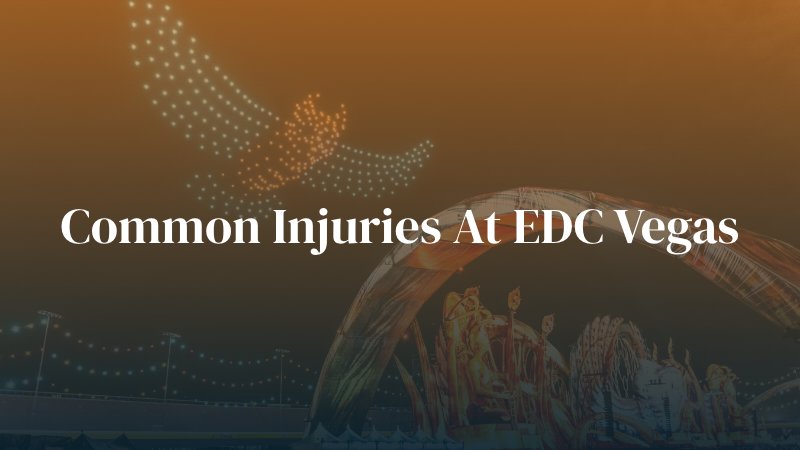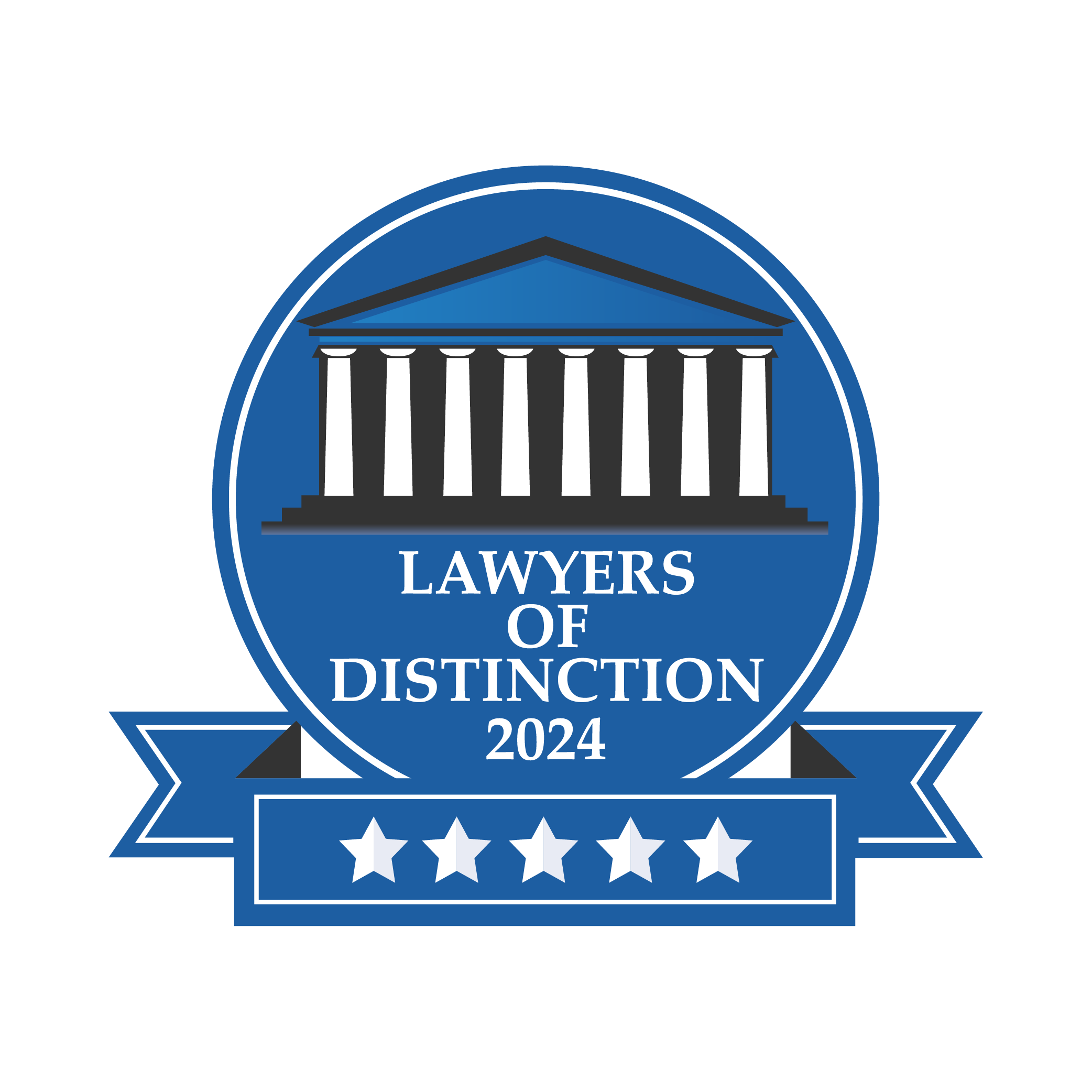Every year, the Electric Daisy Carnival in Las Vegas invites music fans to enjoy a dynamic festival atmosphere filled with electronic dance music, art, and community. With such large gatherings come safety concerns, understanding how to stay safe at EDC Vegas is as important as knowing the steps you take if you find yourself injured.

Recognizing Common Festival Injuries and How They Can Lead to Personal Injury Claims
Despite the careful planning and safety measures in place, certain common injuries at festivals like EDC Las Vegas can lead to personal injury claims. The Las Vegas personal injury attorneys share the most common ones:
Heat-Related Illnesses
Exposure to high temperatures and direct sunlight for extended periods can lead to heat stroke, heat exhaustion, and dehydration. Symptoms include headache, dizziness, muscle cramps, and fainting. It’s crucial to recognize these early signs and take immediate action by seeking shade, drinking water, and cooling down.
Ignoring the early signs of heat-related illnesses at a festival like EDC Las Vegas can escalate into severe medical conditions requiring emergency attention. If the event organizers fail to provide adequate measures such as accessible drinking water, cooling stations, or medical assistance for overheated attendees, they could be held liable for resulting harm.
In such cases, attendees affected by heat-related illnesses due to negligence on the part of the festival management could potentially pursue personal injury claims.
Slip, Trip, and Fall Incidents
With the vast crowds and uneven terrain often found at festivals, slip, trip, and fall incidents are common. These can result from spilled liquids, discarded items on the ground, or poorly lit areas. Injuries from such incidents can range from minor cuts and bruises to more serious fractures or concussions.
When festival attendees are injured in these types of incidents due to hazards that should have been managed by the event organizers, they might have grounds for a personal injury claim. The basis of such a claim hinges on proving negligence – that the organizers failed to maintain a reasonably safe environment for the attendees.
Hearing Loss
Long-term exposure to loud music can lead to temporary or even permanent hearing loss. Tinnitus – ringing or buzzing in the ears – is a common immediate symptom after an event like this, indicating potential damage to the ears. Employing hearing protection is essential to minimize this risk.
Festival organizers have a duty to protect attendees from harmful noise levels by implementing measures such as warning signs, providing earplugs, and monitoring sound levels. Failure to take such precautions violates their responsibility, exposing attendees to harm. Individuals suffering from hearing damage as a result of exposure to excessive noise at an event may be able to seek compensation through a personal injury claim.
Substance-Related Health Issues
It’s not uncommon to see the use of various substances at festivals, which can lead to several health issues, including overdoses.
Substance-related incidents could potentially form a basis for personal injury claims if it can be demonstrated that the event organizers did not take adequate steps to ensure the safety of their attendees. This includes the responsibility to provide sufficient medical facilities, clear information about the dangers of substance misuse, and active monitoring of the event space to prevent the distribution and consumption of harmful drugs.
Physical/Sexual Assault – Negligent Security
Unfortunately, festivals and large public gatherings can also be settings where physical and sexual assaults occur. Insufficient security measures or inadequately trained security personnel can create environments where assailants feel empowered to commit such acts without fear of immediate intervention or repercussion.
Event organizers are required to ensure the safety and security of their attendees by employing a sufficient number of well-trained security staff, installing adequate lighting throughout the venue, and establishing safe zones for individuals who may feel threatened or overwhelmed.
Failure to implement these and other reasonable measures can be considered negligence on the part of the organizers, potentially making them liable for incidents occurring under their watch.
If you have questions or need help filing a claim due to an EDC injury, contact us today to schedule a free consultation.

